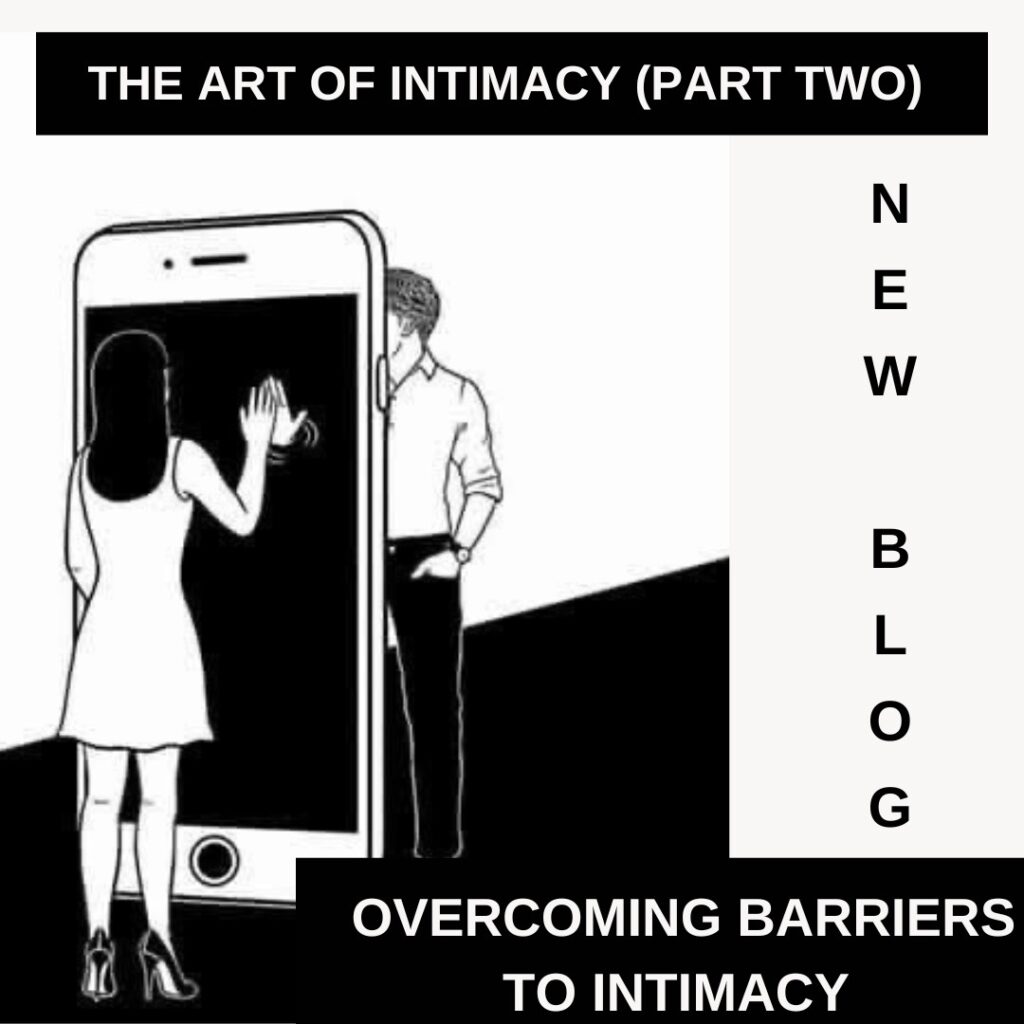Overcoming Barriers to Intimacy
Intimacy can be deeply rewarding, fostering profound connections and emotional fulfillment.
However, many individuals face obstacles that hinder their ability to form and maintain intimate
relationships. These barriers can stem from past experiences, fears, and societal pressures. We
will explore common barriers to intimacy and provide practical strategies for overcoming them,
enhancing our capacity for deep, meaningful connections.

Common Barriers to Intimacy
1. Fear of Vulnerability:
Vulnerability is the cornerstone of intimacy, yet many people fear opening up due to the risk of
rejection, judgment, or hurt. This fear can lead to emotional guardedness, making it difficult to
form close bonds.
2. Past Trauma:
Traumatic experiences, such as abuse or significant loss, can create deep-seated fears and trust
issues. These past events can leave emotional scars that make it challenging to engage in
intimate relationships.
3. Communication Issues:
Effective communication is essential for intimacy. Misunderstandings, lack of communication
skills and fear of conflict can create barriers in relationships.
Strategies for Overcoming Barriers to Intimacy
1. Practice Vulnerability:
Embrace vulnerability by gradually opening up to others. Start with small disclosures and build
trust over time.
Tips:
– Share a personal story or feeling with a close friend.
– Express gratitude and appreciation openly.
– Allow yourself to be seen and heard without self-judgment.
2. Heal from Past Trauma:
Addressing and healing from past trauma is crucial for fostering intimacy. Professional support
can be invaluable in this process.
Tips:
– Seek therapy or counseling to process traumatic experiences.
– Join support groups for shared experiences and understanding.
– Practice self-compassion and patience in your healing journey.
3. Enhance Communication Skills:
Improving communication is key to overcoming barriers to intimacy. Practice active listening,
assertiveness, and empathy in your interactions.
Tips:
– Take time to listen without interrupting.
– Express your thoughts and feelings clearly and respectfully.
– Use "I" statements to take ownership of your emotions.
Building Trust and Connection
Building trust and connection requires consistent effort and mutual respect. Here are some
strategies to strengthen intimacy in your relationships:
1. Consistency:
Be reliable and consistent in your actions and words. Trust is built over time through repeated
positive interactions.
2. Quality Time:
Spend meaningful time together to strengthen your bond. Shared experiences and activities
can create lasting memories and deepen intimacy.
3. Appreciation:
Regularly express appreciation and gratitude for your partner or loved ones. Acknowledging
their efforts and qualities fosters a positive and supportive environment.
Conclusion
Overcoming barriers to intimacy is a journey that requires patience, self-awareness, and effort.
By identifying and addressing the obstacles that hinder your ability to connect deeply with
others, you can cultivate more meaningful and fulfilling relationships. Embrace vulnerability, heal
from past traumas, boost your self-esteem, and enhance your communication skills. Building
trust and connection through consistency, empathy, quality time, and appreciation will pave the
way for deeper intimacy in all areas of your life.
